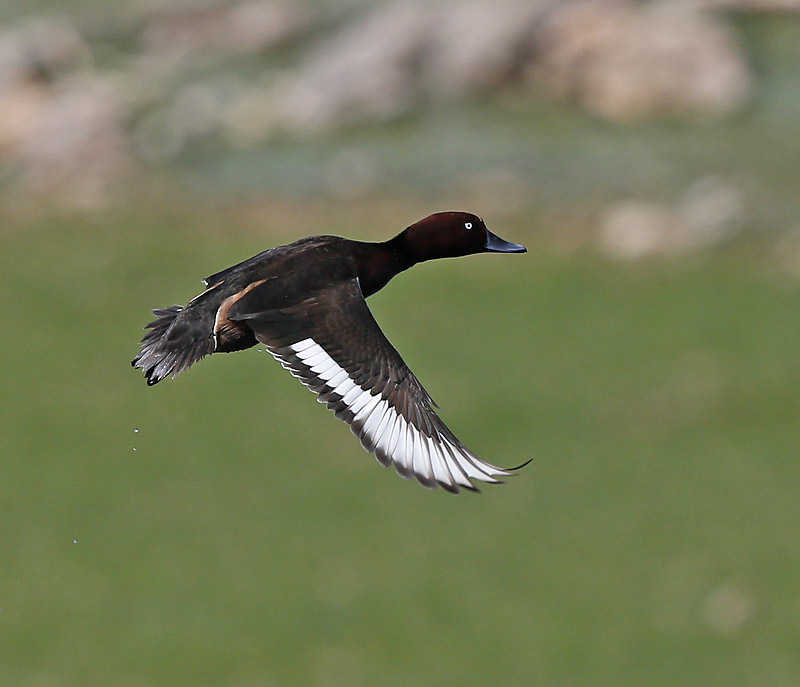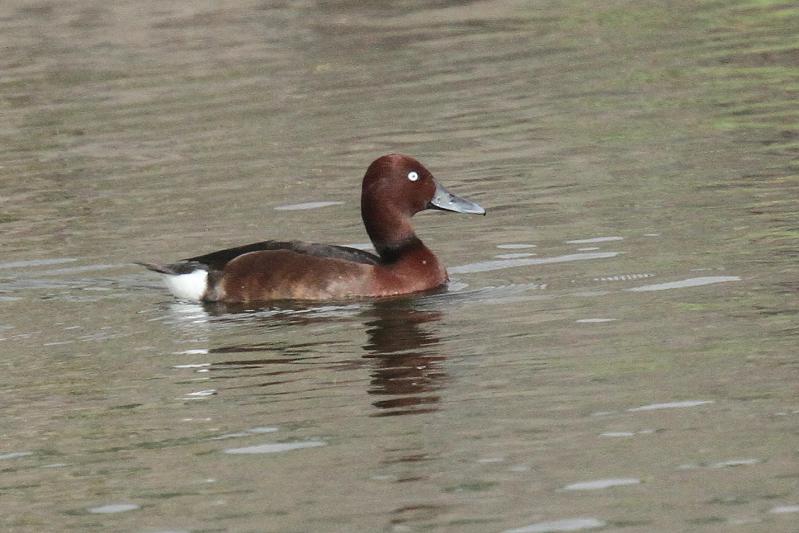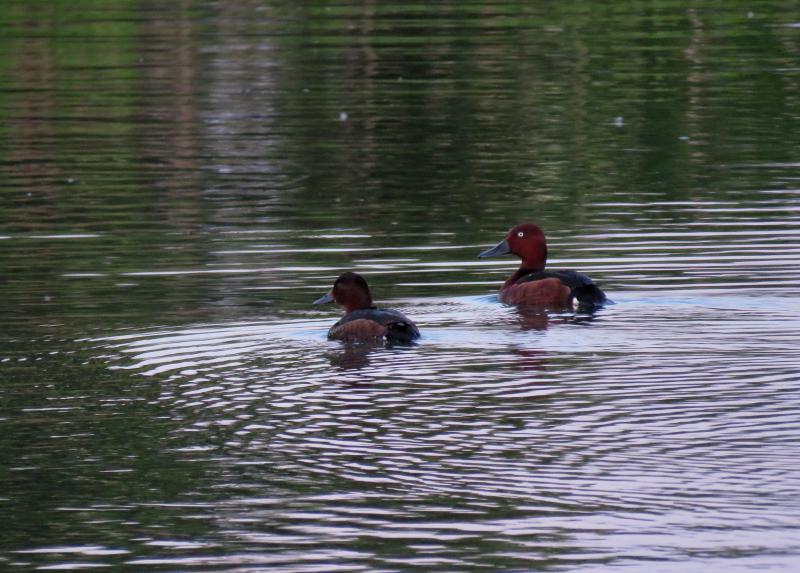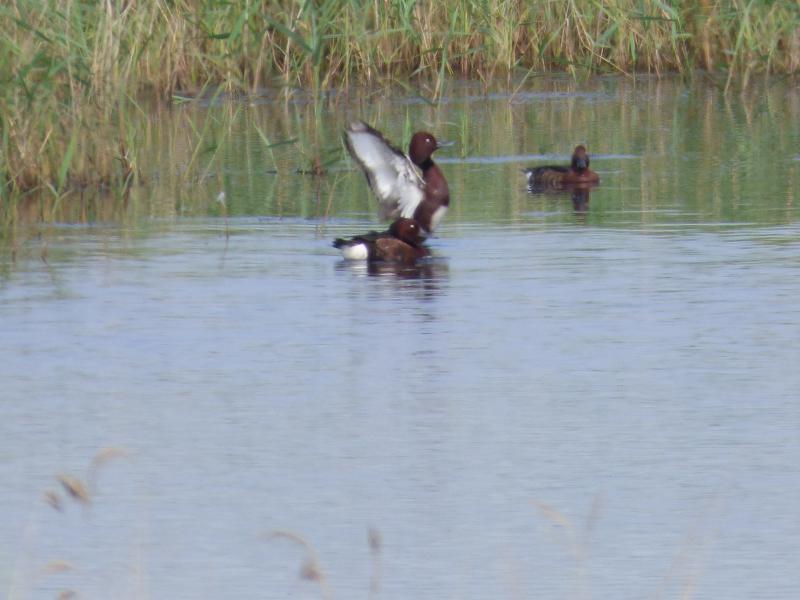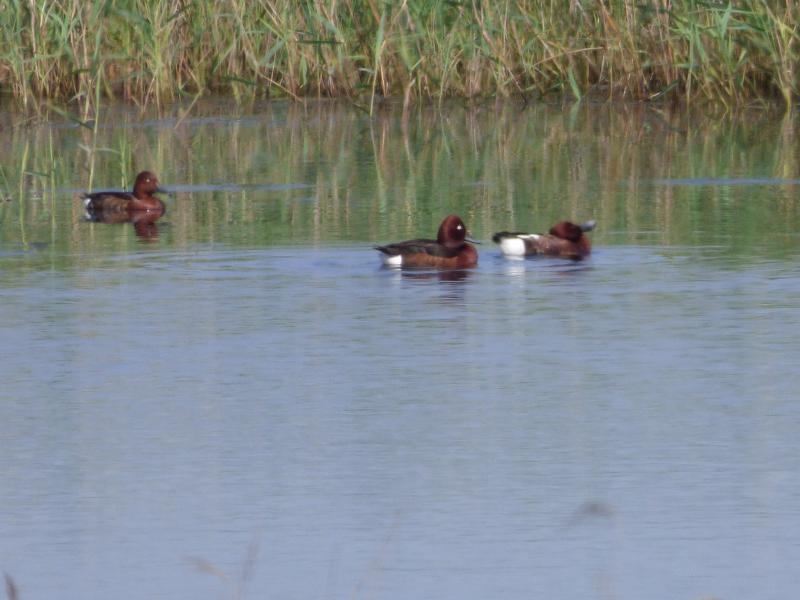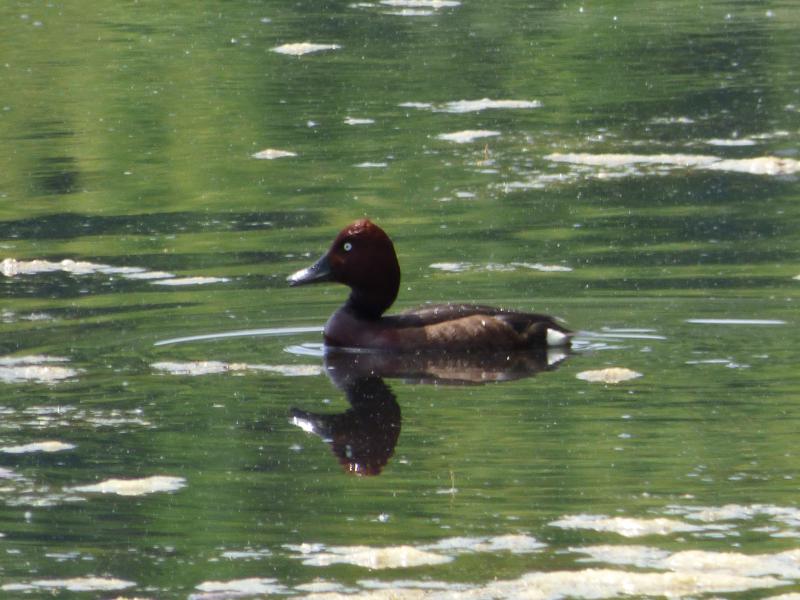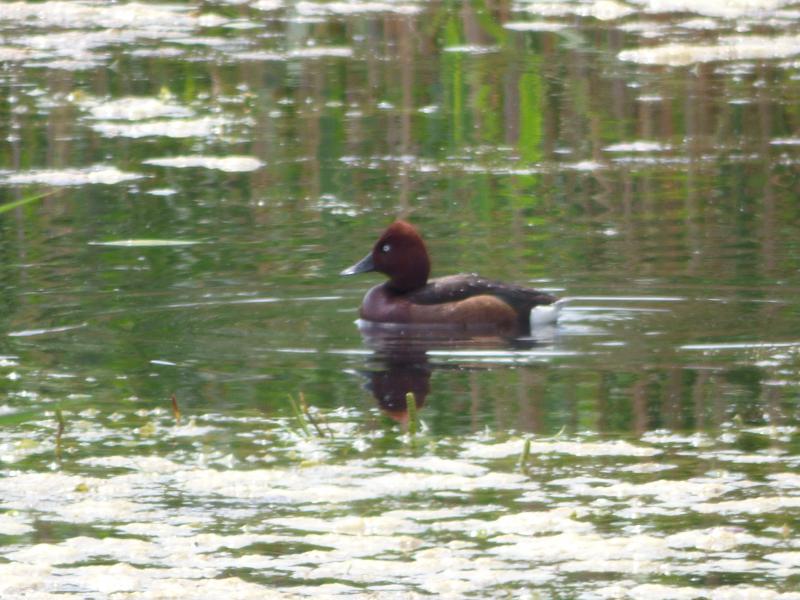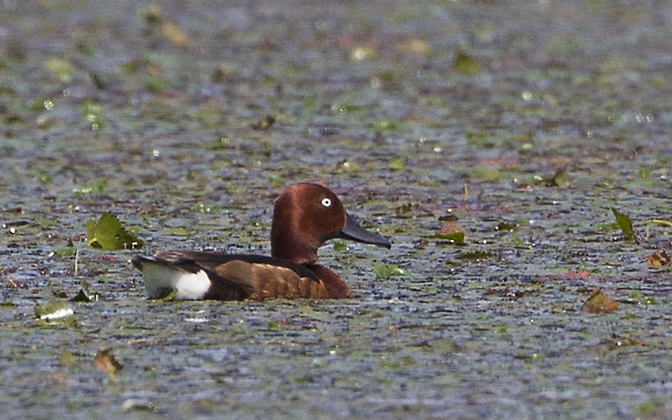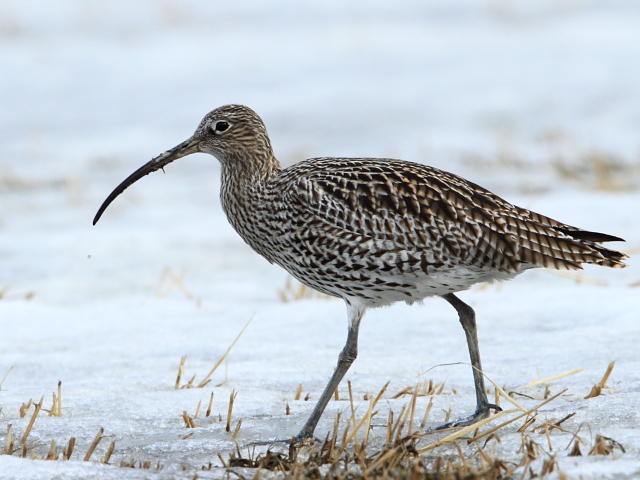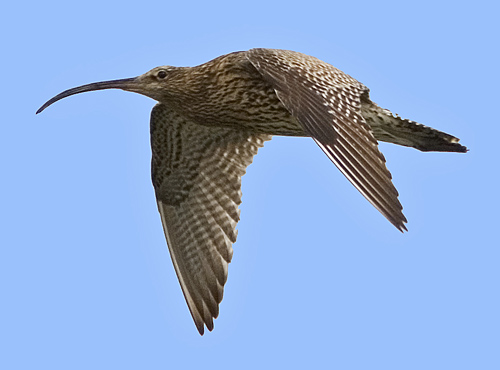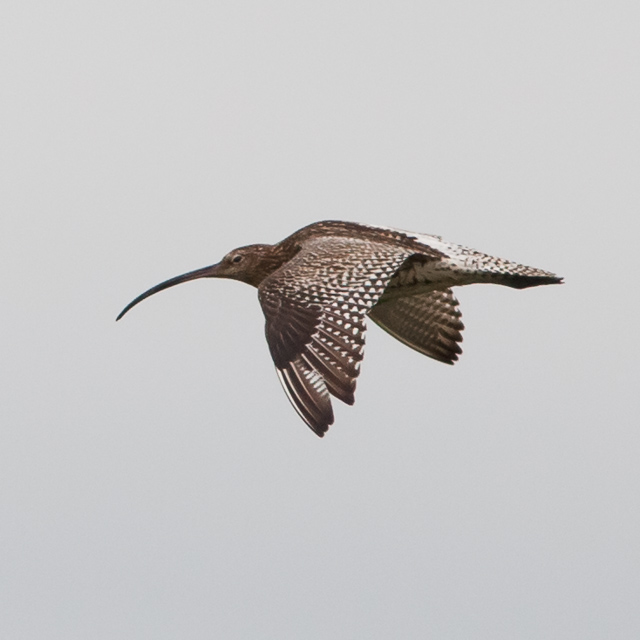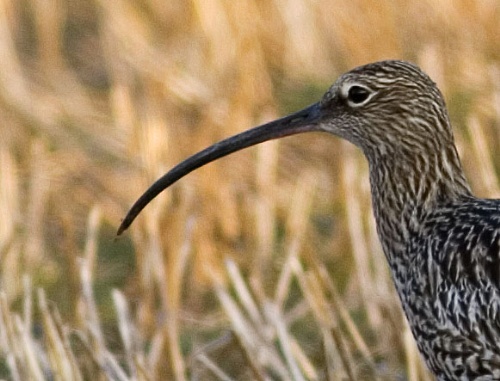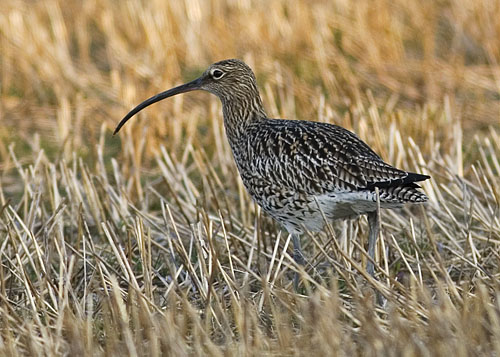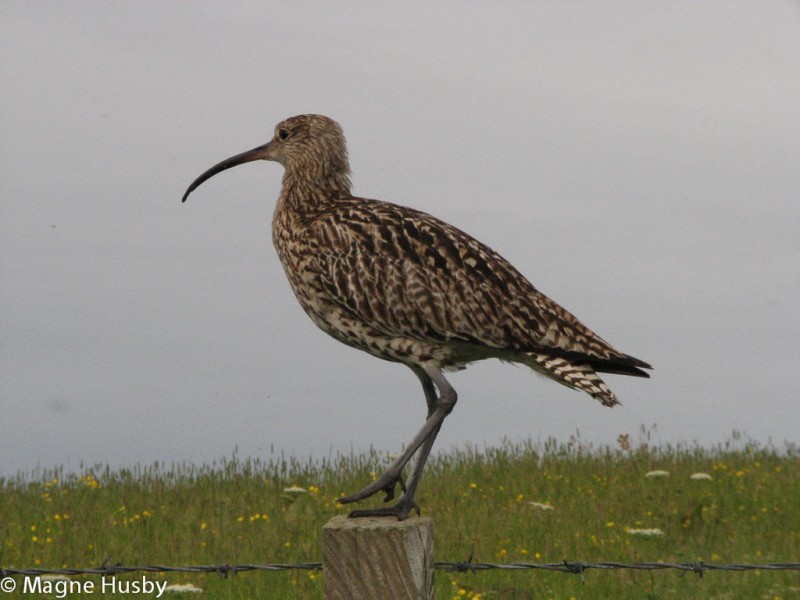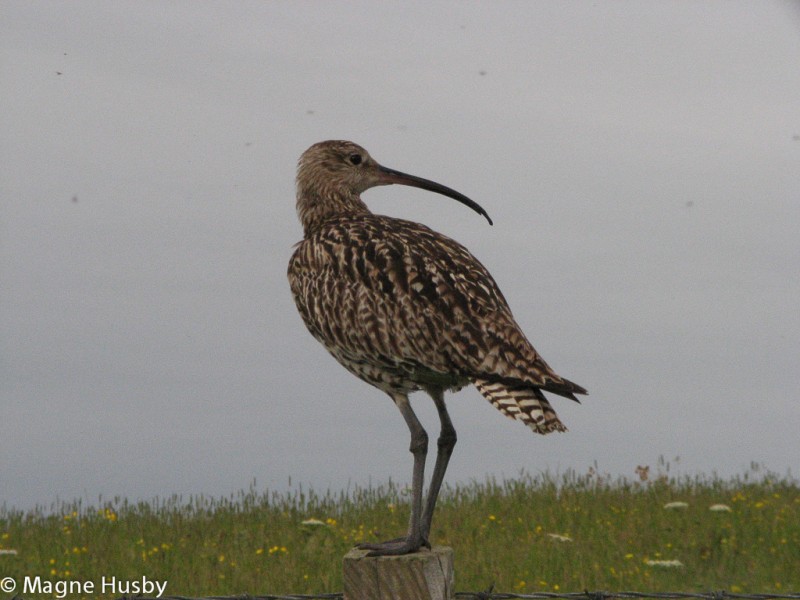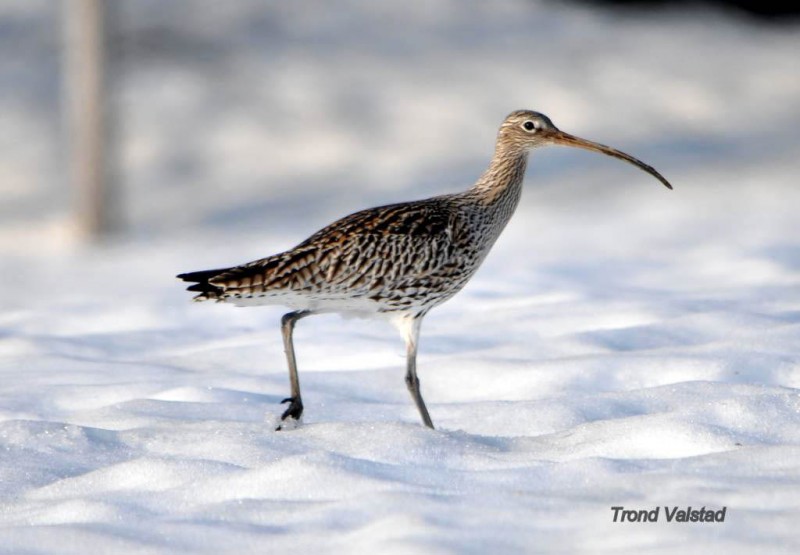Ferruginous Duck (Aythya nyroca)
Curlew (Numenius arquata)
Shape resembles both diving and dabbling ducks. Characteristic head profile with long bill, long sloping forehead and rather high rear crown (not unlike Pochard). White undertail usually visible also when on the water. Broad, white wing-bars and white underwing conspicous in flight. White undertail separated from white belly by brown band. Male with shining white eyes. Female with brown eye and less bright rufous tones to plumage. Immature similar to female, but with even less rufous. Immatures told from immature Pochard by by darker back, no facial markings and white (not grey) wing-bars. Note that Tufted Duck sometimes have white (but more diffuse) undertail. Beware also of hybrids with Pochard (note bill-pattern).
Sound:Female call similar to female Tufted Duck's "kerr kerr", but thinner and with a strong, peculiar bi-tone. Male display call mostly consists of various short "chk" sounds.
Female:
Distribution:
Xeno-canto: map
Ecology:Birdlife ecology
Links:
Observation.org Latest observations
Image search Flickr NB! May give other species
CCCC-sound:Jarek Matusiak, Licence,Link.
CC-photo:Linton Snapper, Licence,Link.
CC-photo:Radovan Václav, Licence,Link.
CC-photo:darwin_initiative, Licence,Link.
Biggest wader in area. Differs from Whimbrel in longer bill with a more even curve, only diffuse head markings without crown stripes or marked eye-stripe. Note that young Curlews have much shorter bill than adults. Base of bill pinkish. Plumage gives a paler impression than Whimbrel, with paler underwings and flanks.
Sound:Song starts similar to Whimbrel, with long wailing notes "kluuueee", but takes on a different ending as it accelerates to an ascending phrase repeated in rapid cycles .
Song:
Distribution:
Wikipedia: map (se also Xeno-canto below)
Ecology:Birdlife ecology
Links:
Observation.org Latest observations
Image search Flickr NB! May give other species
CC
 English
English Albanian
Albanian
 Armenian
Armenian
 Bulgarian
Bulgarian
 Catalan
Catalan
 Croatian
Croatian
 Czech
Czech
 Danish
Danish
 Dutch
Dutch
 Finnish
Finnish
 French
French
 Georgian
Georgian
 German
German
 Greek
Greek
 Hungarian
Hungarian
 Italian
Italian
 Latvian
Latvian
 Lithuanian
Lithuanian
 Macedonian
Macedonian
 Norwegian
Norwegian
 Polish
Polish
 Portuguese
Portuguese
 Romanian
Romanian
 Russian
Russian
 Sami : Lule sami
Sami : Lule sami
 Sami : North sami
Sami : North sami
 Sami : South sami
Sami : South sami
 Scientific names
Scientific names
 Serbian
Serbian
 Spanish
Spanish
 Swedish
Swedish
 Ukrainian
Ukrainian


